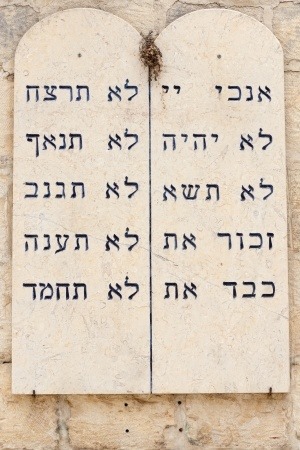-

Making your voice heard on high
The next three appointed times on YHVH’s calendar is approaching, Yom T’ruah, Yom Kippurim, and Sukkot. It is always a good thing to “take stock” of our spiritual condition before we observe these days. Especially Yom Kippurim, a day of humbling ourselves before YHVH. It is part of Jewish tradition to do introspection for forty…
-

The Law of Moses is the Law of YHVH!
The phrase “the Law of Moses” is used in Scripture quite a few times, but does this phrase mean that it carries with it only the authority of Moses, and can therefor be abolished? In order to answer this question, we need to determine what is contained in the Law of Moses and who gave…
